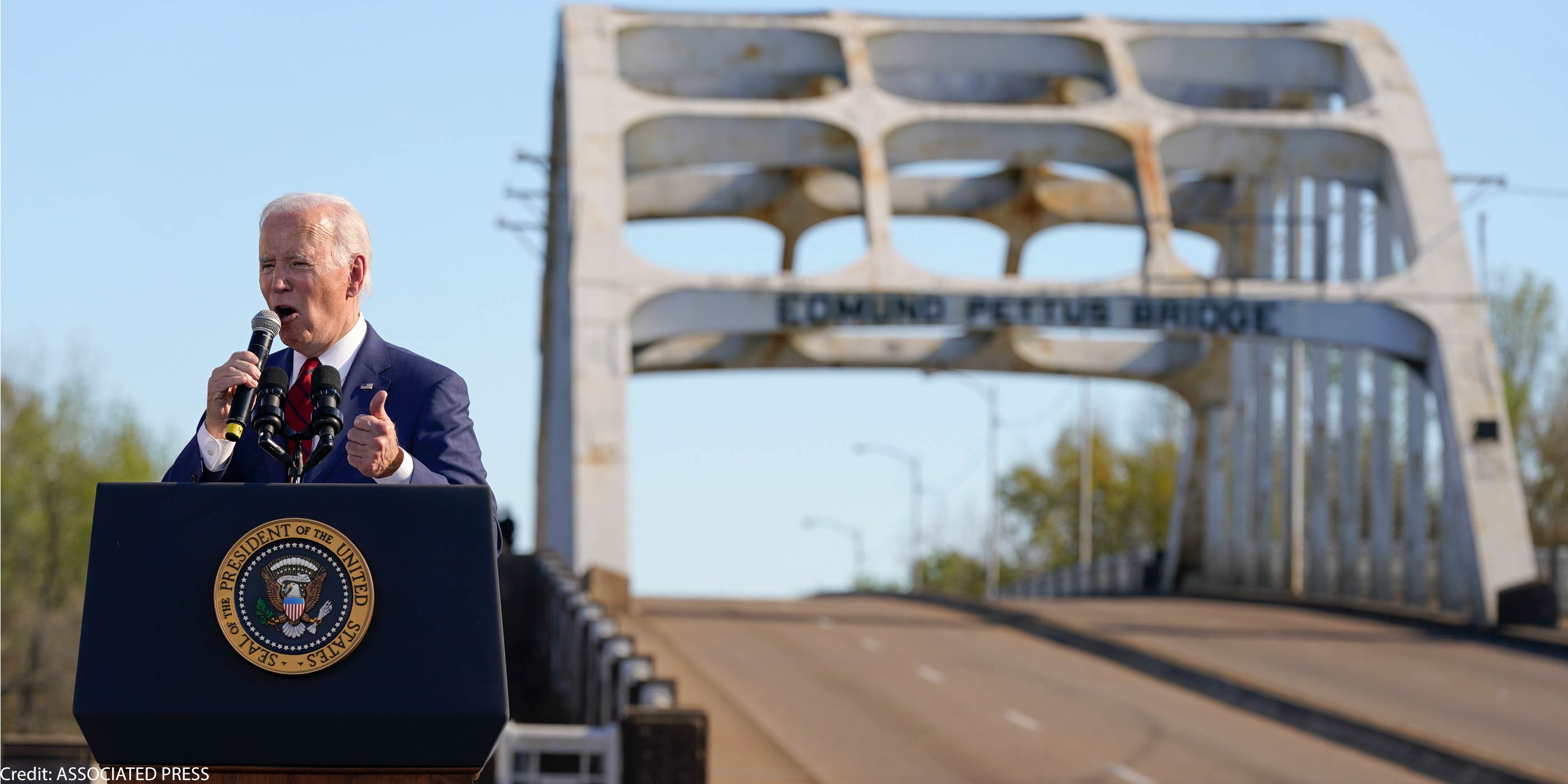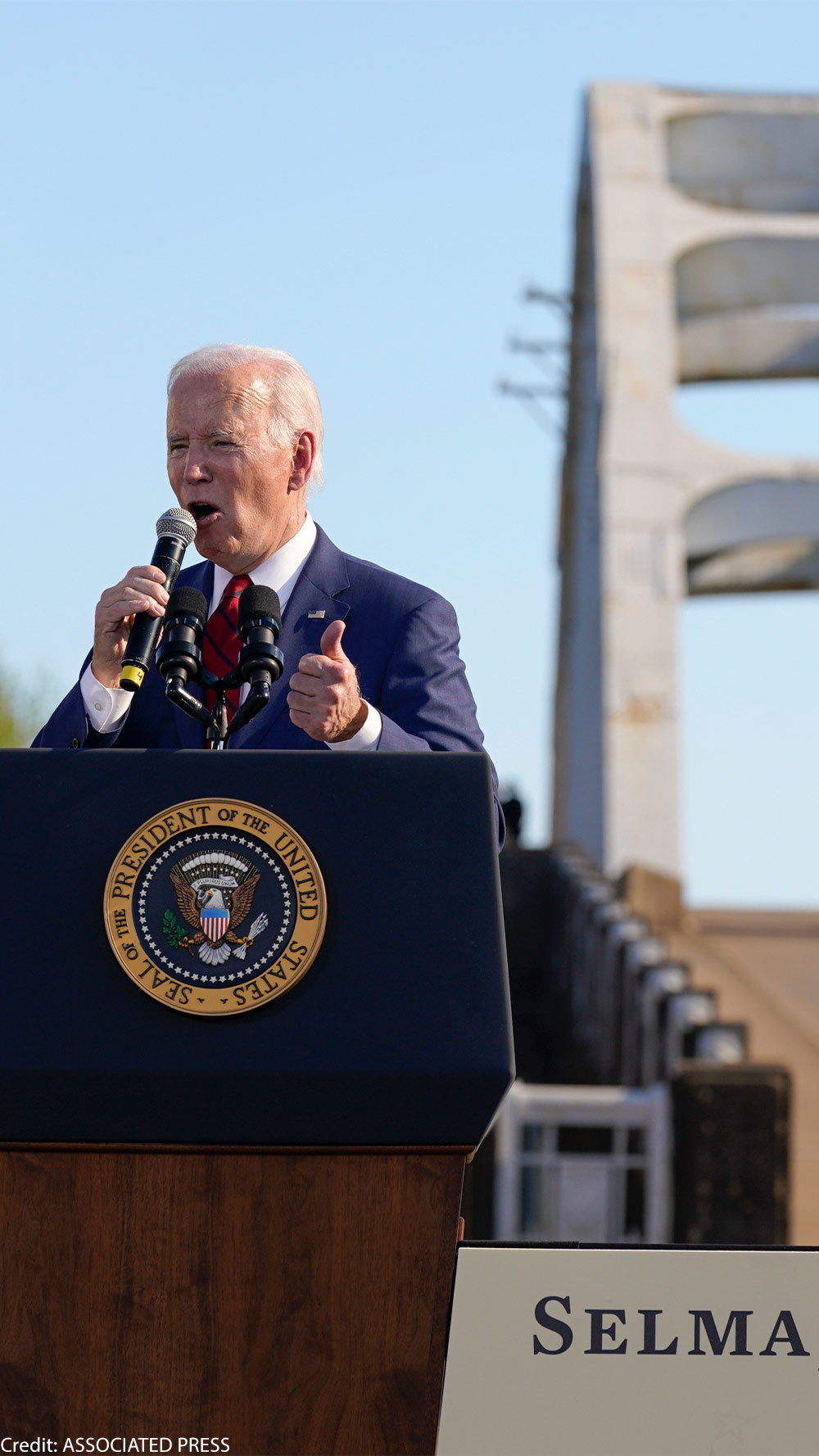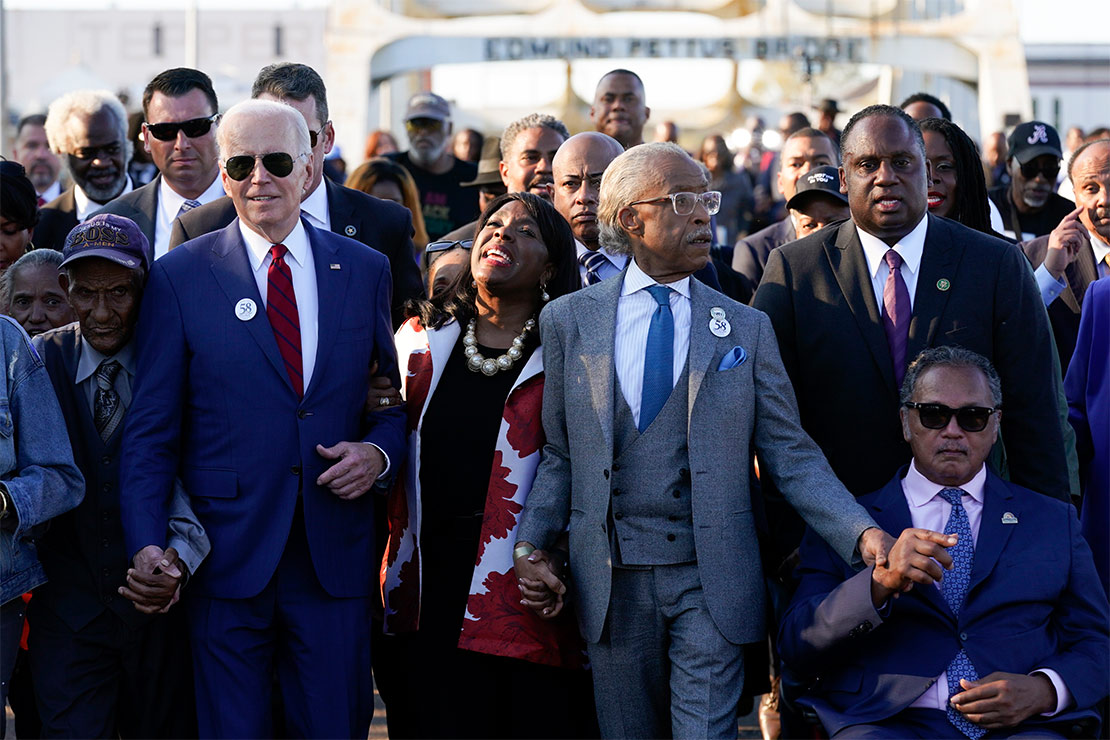Biden Can Expand Voting Access Through His Executive Order


Fifty-eight years ago on March 7, television viewers saw 500 peaceful demonstrators in Selma, Alabama, teargassed and beaten by police. The marchers were protesting the murder of a young, unarmed Black man and the continued disenfranchisement of Black people in the South.
The brutal, unprovoked attack sparked national outrage, became known as “Bloody Sunday,” and was a catalyst of the voting rights movement. This march led to the signing and passage of the Voting Rights Act of 1965 by Congress and President Lyndon B. Johnson.
On March 7, 2021 President Biden issued , a visionary executive order that has the potential to make registration and voting more accessible for millions of Americans, including communities historically excluded from the political process. In the order, President Biden directed federal agencies to “consider ways to expand citizens’ opportunities to register to vote and to obtain information about, and participate in, the electoral process.”
In a democracy, governments at all levels should be doing everything they can to help eligible people register to vote.
In a democracy, governments at all levels should be doing everything they can to help eligible people register to vote. The voting access executive order is an important step toward achieving this goal because it gets the federal government involved in aiding with voter registration, just as state governments already do.
On the anniversary of Bloody Sunday and the two-year anniversary of this executive order, we acknowledge both that the administration and agencies have made progress, and that significant work remains. Building on its promising start, it’s time for the Biden administration and agencies to finish the job and fulfill the promise of the voting access executive order.
That’s why the ACLU, alongside a coalition of civil rights organizations, issued the report “,” to highlight, at the agency level, what has been done and what is still needed to help ensure every eligible voter has robust, easy, and equal access to the ballot box.
On the anniversary of Bloody Sunday and the two-year anniversary of this executive order, we acknowledge both that the administration and agencies have made progress, and that significant work remains.
A few agencies have made noteworthy headway. For example, by accepting National Voter Registration Act (NVRA) designations for the tribal institutions it operates, the Department of the Interior has moved to ensure that eligible students who attend these institutions have regular access to high-quality voter registration. The Department of Veterans Affairs (VA) has also begun working with state election officials to secure NVRA designations. And by incorporating voter registration into the Volunteer Income Tax Assistance program, the Treasury Department is helping to address persistent income-based gaps in voter registration by improving access to voter registration among people with low incomes.
However, most agencies have either made minimal progress on their initial strong commitments to expand voter access or have left important opportunities on the table. Our report highlights that most federal agencies have significant room for improvement in their implementation of the voting access executive order.

President Joe Biden walks hand-in-hand with Rep. Terri Sewell, D-Ala., the Rev. Al Sharpton, and the Rev. Jesse Jackson and others across the Edmund Pettus Bridge in Selma, Ala. observing the 58th anniversary of Bloody Sunday.
ASSOCIATED PRESS
Here are a few examples of the most impactful actions agencies can take before the end of the year to implement the executive order:
1. The Department of Health and Human Services should add an effective voter registration opportunity to the application for benefits on HealthCare.gov by the next open enrollment period.
2. The VA should continue to work closely with election officials in Kentucky, Michigan, and Pennsylvania to finalize designation agreements under the NVRA to provide effective voter registration services to veterans who sign up for health care through the VA. Further, the VA should work to secure designations in additional states and follow through on its commitment to fully explore adding voter registration to its online benefits applications.
3. Indian Health Services should add a voter registration opportunity and assistance to patient interactions at Indian Health Services facilities.
4. The Department of Education should add a voter registration opportunity for applicants using the Free Application for Federal Student Aid.
5. The Bureau of Prisons, the agency within the Department of Justice which oversees federal prison facilities, and the U.S. Marshals Service, which oversees people in federal pre-trial custody, amongst other activities, can also fully implement the executive order. While both agencies have made efforts to improve voter access for eligible voters who are currently incarcerated in federal prisons or held in federal pre-trial custody, there is still more that can be done to ensure full implementation of systems facilitating civic engagement and access to the ballot. You can read more about the steps they can take .
Both President Biden and the agencies must act over the next several months to make the most of this important executive order. If they do not, the voting access order will be a lost opportunity.
Given the likely impasse in Congress with federal voting rights legislation, fulfilling the promise of this order is the best way the federal government can help increase access to registration and voting. Agencies must work now to implement the order, so that the various agency programs will be operational in time for citizens to register and participate in federal elections in 2024.



